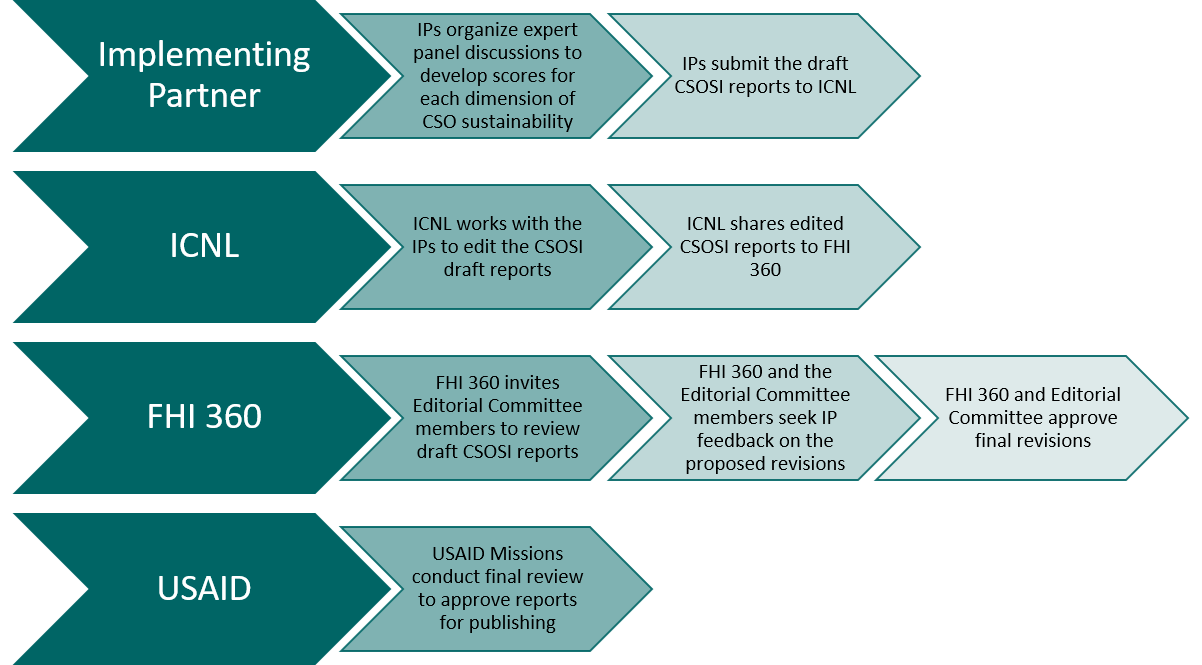
Methodology Overview
The CSOSI reports are developed by local implementing partners. The IPs convene expert panels and to discuss the status of civil society over the reporting year and, then prepare draft narrative reports on the current state of sustainability of the civil society sector.
The expert panel members, representing diverse geographical, sectoral and minority status and areas, discuss each of the seven dimensions of civil society sustainability covered by the Index and develop consensus-based scores for each dimension reflecting the level of change during the year being assessed.
The seven dimensions of CSO sustainability covered by the CSOSI are: legal environment, organizational capacity, financial viability, advocacy, service provision, sectoral infrastructure, and public image. Scores range from 1 (the most enhanced level of sustainability) to 7(the most impeded).
The scores are organized into three basic “tiers” representing the level of viability of the civil society sector: Sustainability Impeded (5.1 to 7.0); Sustainability Evolving (3.1 to 5.0); and Sustainability Enhanced (1.0 to 3.0). Editors from the International Center for Not-for-Profit Law (ICNL), work with the IPs to revise and improve their reports. Revised reports are then sent to the local USAID Missions and an Editorial Committee (EC) in Washington, DC that consists of representatives from USAID, FHI 360, ICNL, and a regional expert. The EC further reviews the content of the reports and the scoring decisions made by the expert panelists.

Feedback from the EC Meetings is delivered to the IPs to address. The IPs respond to requests for further evidence, address any inaccuracies or gaps, and answer any additional questions posed to them. The IPs also indicate whether they accept the EC’s proposed alternative scores; if not, they provide additional justification for their original scores.
Once this revised draft is submitted to FHI 360, the EC members meet once more virtually to discuss whether the revisions address all concerns. If they do not, an additional round of feedback is provided to the IP. If after this second round of feedback, there are still disagreements with the IP, the EC Chair makes the final scoring or editorial decisions.
CSOSI Development Process
CSOSI is a cyclical annual process of close cooperation among FHI 360, ICNL, IPs, and USAID:

Dimensions
The CSOSI measures the sustainability of CSO sectors across seven dimensions:
- Legal Environment - The legal and regulatory environment governing the CSO sector and its implementation
- Organizational Capacity - The internal capacity of the CSO sector to pursue its goals
- Financial Viability - The CSO sector's access to various sources of financial support
- Advocacy - The CSO sector's ability to influence public opinion and public policy
- Service Provision - The CSO sector's ability to provide goods and services
- Sectoral Infrastructure - Support services available to the CSO sector
- Public Image - Society's perception of the CSO sector
Click here to return to the CSOSI Homepage.
